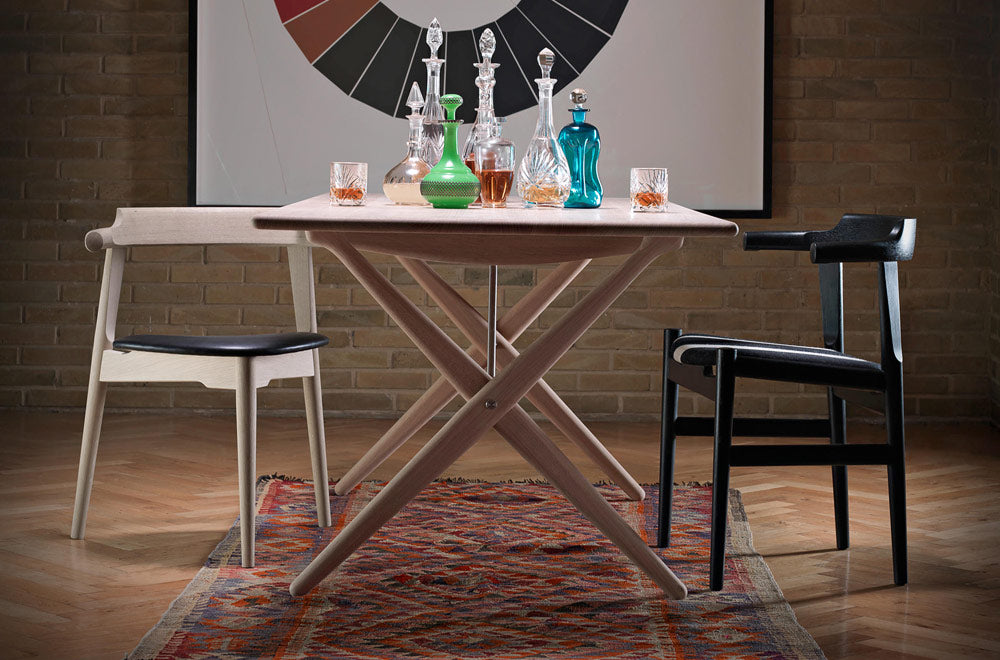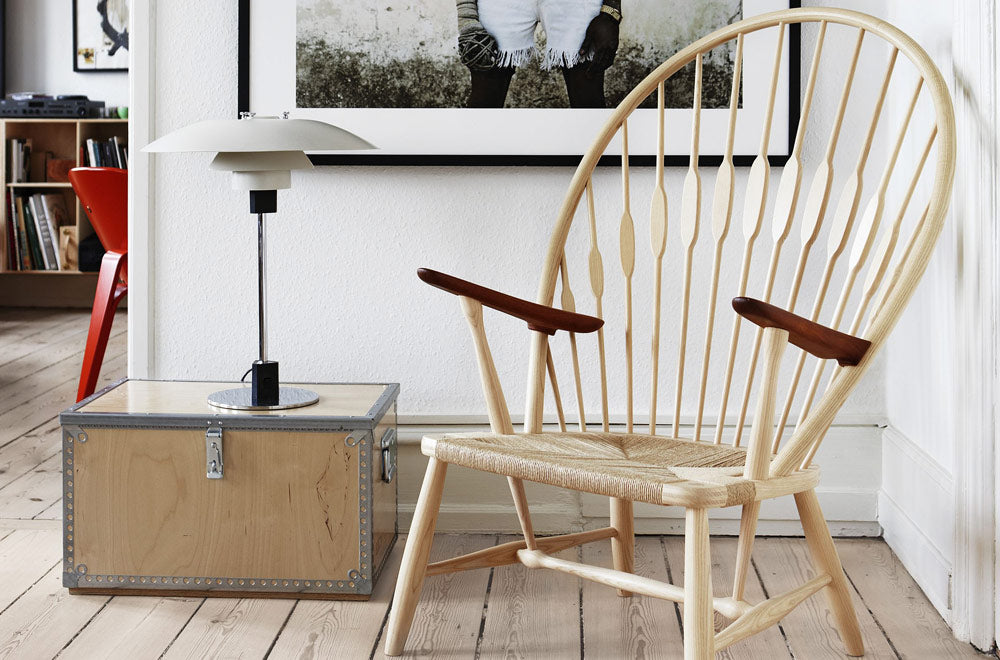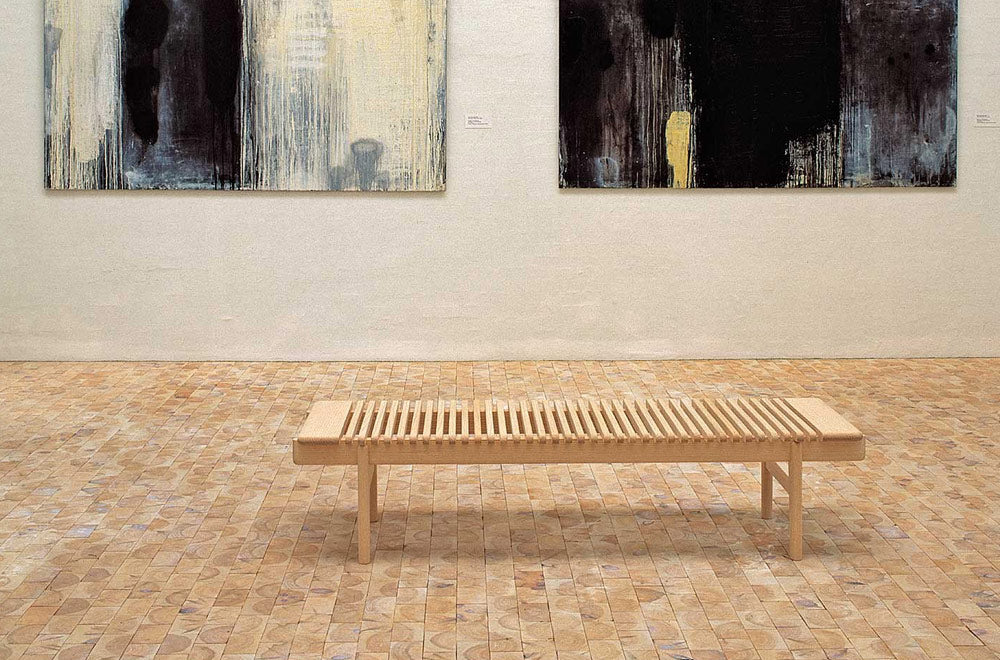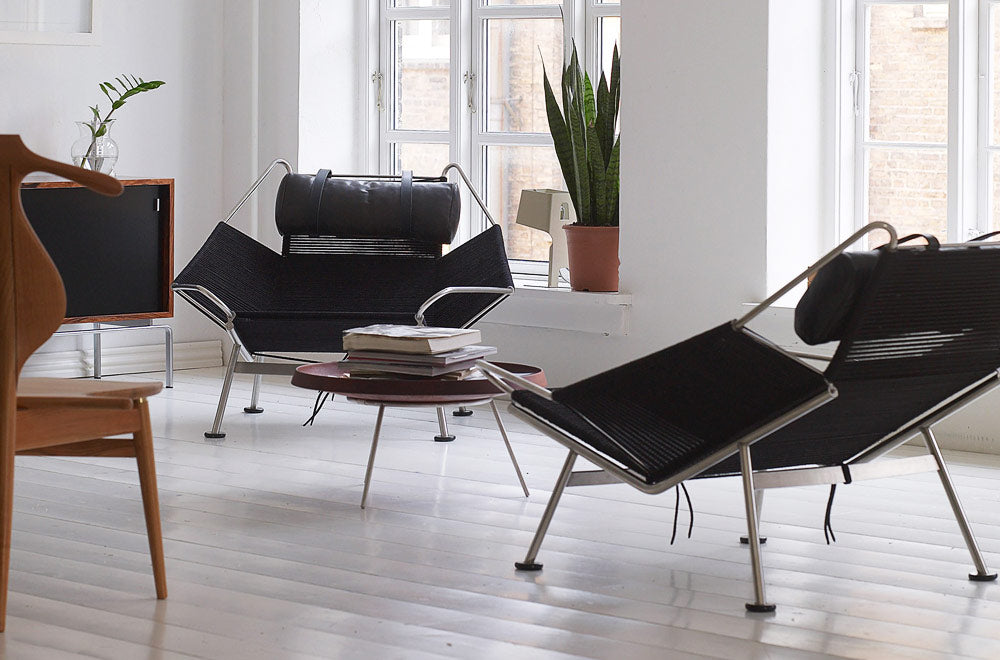In 1965 Wegner completed his house in Gentofte, north of Copenhagen, where he lived with his family for 40 years. Wegner himself had designed every little detail of the house, down to the placement of each stone in the walls, all cabinets, windows and doors as well as a couple of lamps.
As a minimalistic version of the pp518 Bull Chair, pp701 was designed specifically to fit into the dinning room, and as the family moved into their new home, so did the first production of the Minimal Chair – and these chairs have never been replaced.
The frame is reduced using stainless steel, and as in the Swivel Chair Wegner reserved the use of solid wood for the part that is closest to the human body: the arm- and backrest. This part is reduced to the extent where the central joints used in the Bull Chair are no longer adequate. Wegner then introduced an upper and lower piece to connect the two armrests, and thus the Bull Chair centre joints transformed into the characteristic centre cross.
Son of a shoe-maker in southern Jutland, Hans Wegner, finished his formal training as a cabinetmaker with master cabinetmaker Stahlberg in 1930 before starting at Teknologisk Institut in Copenhagen. He soon moved to the School of Arts and Crafts in the Danish capital where he became architect in 1938, and started teaching in 1946.
In 1940 he joined Arne Jacobsen and Erik Møller in Arhus, to design the furniture for the new Arhus city hall. He started to work with 'minister' cabinetmaker Johannes Hansen in 1940 and showed his first furniture in the famous Hansen store on Bredgade 65 in 1941. Johannes Hansen was more than twice as old as the 26 year old Wegner but the unique collaboration between the two became the undisputed backbone of Danish furniture design and the main reason for it's world wide recognition in the fifties and sixties. The Copenhagen Museum of Art and Industry acquired the first Wegner chair in 1942.
In 1943 he started his own design office and 1 year later designed the first of a long series of 'chinese' chairs inspired by portraits of Danish merchants sitting in Ming chairs for Fritz Hansen. In 1950 Wegner designed the “Wishbone Chair” produced by Carl Hansen & Søn in Odense which became the most successful of all Wegner chairs. Most well known for it’s use by Kennedy and Nixon in their famous CBS TV debate of 1960.


























